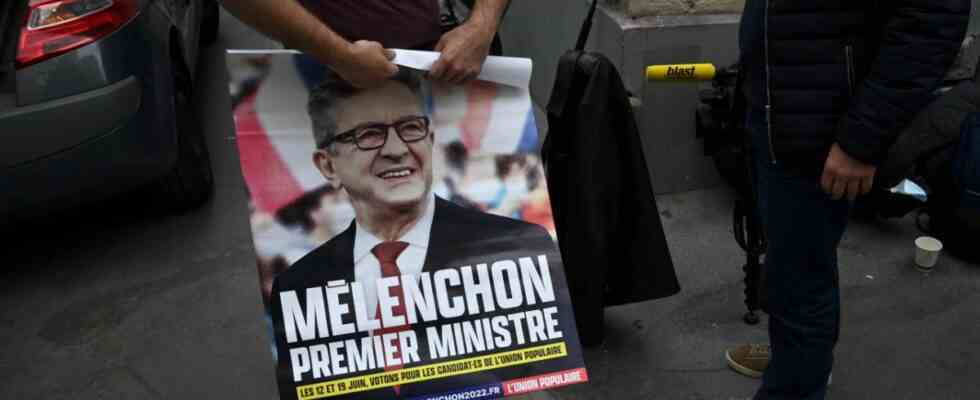Following the Greens and the Communists, France’s Socialists are now on the verge of forging an anti-President Emmanuel Macron electoral alliance with La France Insoumise (LFI), Jean-Luc Mélenchon’s far-left party, for June’s general election. It would be a historic step, a kind of reunification, 14 years after Mélenchon’s separation from the Socialists. However, the party council of the Parti socialiste (PS) still had to decide on the agreement reached on Wednesday after several days of negotiations.
A bitter argument was expected. A “storm” is blowing through the PS, the media said, and a party spokesman even spoke of a “titanic battle.” Admittedly, the supporters seemed to be in the majority among the 300 voters. However, a considerable opposing group has formed. It includes socialist heavyweights such as former President François Hollande, ex-Prime Minister Bernard Cazeneuve, former Minister Stéphane Le Foll and the President of the southern region of Occitania, Carole Delga. Cazeneuve threatened to resign. He and Hollande reject an alliance with Mélenchon on grounds of principle.
In her view, LFI is not an acceptable partner because of its sheer radical nature – in foreign and European policy, pensions, state reform. Cazeneuve referred to “violence and insults” that he had to endure from the LFI. Hollande warned that the Socialists were in danger of “disappearing”. According to the resisters, the PS is selling its soul and its history for a few additional mandates, which can be obtained through the list alliance.
They also point out that under the agreement with LFI, the PS can only run in 70 out of 577 constituencies, 30 of which are considered “winnable”. That’s a lot less than the more than 300 constituencies in which the PS ran in 2017. However, it reflects Mélenchon’s strong performance in the first round of the presidential election (22 percent) and the fiasco experienced by PS candidate Anne Hidalgo with just 1.7 percent. Ideally, it could allow the PS to retain a large proportion of the existing seats in the National Assembly.
The agreement with Mélenchon follows his EU-critical course
For this reason, party president Oliver Faure and his followers defend the cooperation with Mélenchon as the only alternative. Faure said it was important to him to change people’s lives, and to do that you had to “find your way back to power”. Ex-party leader Martine Aubry, daughter of former EU Commission President Jacques Delors, also defended the agreement, even if she had problems with it in European politics.
Among other things, it was agreed to increase the minimum wage, to introduce retirement at 60 and to cap the prices of important everyday products. When it came to Europe, the PS essentially followed Mélenchon’s critical course, although this was verbosely covered up. One does not speak of “disobedience” to the European rules, but of a “temporary deviation”. But both are concerned with the same thing, namely the implementation of the joint program, an “end of the liberal and productivist course of the EU”. It goes on to say that this will “inevitably lead to tensions and contradictions. We must overcome these blockages and be prepared to break certain rules while we work to transform them”.
The stability pact, the competition policy and the agricultural policy of the EU are expressly mentioned. Other countries have shown that you don’t always have to comply with EU rules: Portugal on economic policy, Spain on energy prices, Germany on drinking water supplies.

